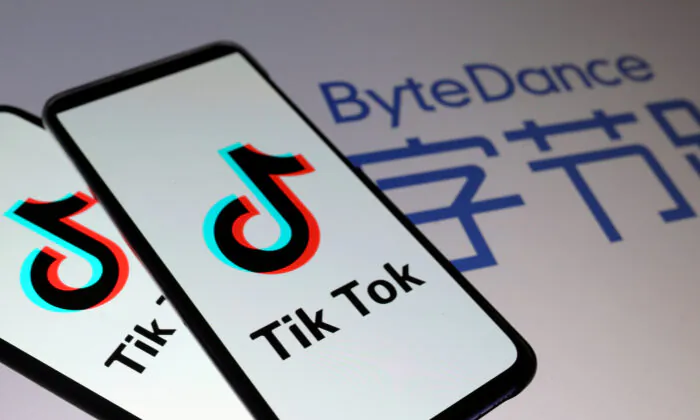
A former ByteDance executive has alleged in a lawsuit filed against the tech company that Chinese regime officials had unfettered access to the company’s data when he worked there, including data stored in the United States.
Yintao Yu, 36, was the head of engineering for ByteDance’s U.S. operations from August 2017 to November 2018. He filed a wrongful dismissal lawsuit against the company in San Francisco Superior Court on May 12.
Yu alleges that he was fired from ByteDance—the parent company of the Chinese video app TikTok—after reporting instances of alleged misconduct at the company to his bosses, who dismissed his concerns.
Yu accused ByteDance of stealing content from other platforms, such as Instagram and Snapchat. He said the tech giant served as a “propaganda tool” for the Chinese Communist Party (CCP) by manipulating content.
He claimed to have witnessed ByteDance engineers manipulating the algorithm on Douyin, the Chinese version of TikTok, to promote content expressing hatred for Japan and demote content showing support for the Hong Kong protests.
Yu said the CCP had a special unit at ByteDance’s offices in Beijing that provided guidance on how the company could advance “core Communist values.”
Yu said the regime officials had the ability to turn off the Chinese version of ByteDance’s apps and maintained access to all company data, including information stored in the United States.
Yu is seeking punitive damages, lost earnings, and 220,000 ByteDance shares that weren’t vested by the time he was fired.
A ByteDance spokesperson told The Epoch Times by email that Yu worked on an app called Flipagram during his tenure at the company, which was discontinued years ago due to “business reasons.”
The spokesperson also said that Yu worked for ByteDance for less than a year, and his employment ended in July 2018, which differs from Yu’s claims.
“We plan to vigorously oppose what we believe are baseless claims and allegations in this complaint,” the spokesperson said. “ByteDance is committed to respecting the intellectual property of other companies, and we acquire data in accordance with industry practices and our global policy.”
TikTok has come under increased scrutiny in Washington because of national security concerns and the potential that U.S. users’ private information could land in the hands of the CCP, with many lawmakers advocating for a nationwide ban of the app.
ByteDance has repeatedly denied that TikTok data is handed to Beijing, with the company claiming that it stores U.S. user data on servers outside China.
Legislation to Clamp Down on TikTok
Senate Majority Leader Chuck Schumer (D-N.Y.) said on May 3 that senators will consider legislation aimed at increasing the United States’ ability to restrict TikTok and other foreign-controlled apps.
Schumer was referencing legislation proposed by Sens. Mark Warner (D-Va.) and John Thune (R-S.D.) in March, dubbed the RESTRICT Act.
Under the legislation, the Commerce Department would be granted new authority to “identify, deter, disrupt, prevent, prohibit, investigate, or otherwise mitigate” any risks stemming from a range of information communications and technology transactions involving foreign-owned apps such as TikTok.
 (L–R) Senate Select Committee on Intelligence Chairman Mark Warner (D-Va.), Sen. Joe Manchin (D-W.Va.), Sen. Michael Bennett (D-Colo.), Sen. Mitt Romney (R-Utah), and Sen. Dan Sullivan (R-Alaska) during a news conference to introduce the RESTRICT Act at the U.S. Capitol on March 7, 2023. (Chip Somodevilla/Getty Images)
(L–R) Senate Select Committee on Intelligence Chairman Mark Warner (D-Va.), Sen. Joe Manchin (D-W.Va.), Sen. Michael Bennett (D-Colo.), Sen. Mitt Romney (R-Utah), and Sen. Dan Sullivan (R-Alaska) during a news conference to introduce the RESTRICT Act at the U.S. Capitol on March 7, 2023. (Chip Somodevilla/Getty Images)
Warner and Thune were joined by 24 other senators earlier this year in proposing the measure.
In April, Commerce Secretary Gina Raimondo said at a Senate hearing that the Biden administration is taking “urgent actions” to address security risks posed by TikTok and other foreign companies, including hiring people to monitor and identify such companies.
“I’ve put over 200 Chinese companies on the entity list in my tenure, and we are actively, constantly investigating additional threats, and if we think companies need to go onto the list, I will not hesitate,” she said.
Katabella Roberts and The Associated Press contributed to this report.